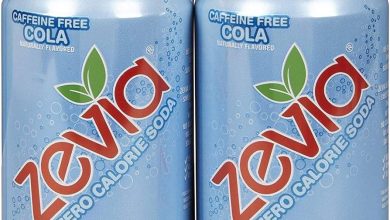Spinach (Raw)
Spinach is a nutrient-dense leafy green that can be a great addition to various dishes. Known for its versatility and health benefits, spinach provides a wealth of essential vitamins and minerals while being incredibly low in calories. Whether tossed in salads, blended into smoothies, or used in cooked recipes, spinach offers a refreshing and healthy touch to any meal.
Nutritional Information (per 100g of raw spinach):
| Nutrient | Amount |
|---|---|
| Energy | 23.0 kcal |
| Protein | 2.86 g |
| Total Fat | 0.39 g |
| Saturated Fat | 0.063 g |
| Carbohydrates | 3.63 g |
| Fiber | 2.2 g |
| Sugar | 0.42 g |
| Calcium | 99.0 mg |
| Iron | 2.71 mg |
| Magnesium | 79.0 mg |
| Phosphorus | 49.0 mg |
| Potassium | 558.0 mg |
| Sodium | 79.0 mg |
| Zinc | 0.53 mg |
| Copper | 0.13 mcg |
| Manganese | 0.897 mg |
| Selenium | 1.0 mcg |
| Vitamin C | 28.1 mg |
| Thiamine (Vitamin B1) | 0.078 mg |
| Riboflavin (Vitamin B2) | 0.189 mg |
| Niacin (Vitamin B3) | 0.724 mg |
| Vitamin B6 | 0.195 mg |
| Folate (Vitamin B9) | 194.0 mcg |
| Vitamin B12 | 0.0 mcg |
| Vitamin A | 469.0 mcg |
| Vitamin E | 2.03 mg |
| Vitamin D2 | 0.0 mcg |
Allergen Information
Spinach is naturally free from common allergens like dairy, gluten, and nuts. However, individuals with a sensitivity to oxalates or those on certain kidney-related diets should moderate their intake of spinach due to its relatively high oxalate content.
Dietary Preferences
- Vegetarian: Suitable for vegetarians.
- Vegan: Suitable for vegans.
- Gluten-Free: Naturally gluten-free.
- Low Calorie: With only 23 kcal per 100g, spinach is ideal for calorie-conscious diets.
- High Fiber: A great option for those seeking high fiber content for digestive health.
- Low Fat: Spinach is low in fat, with only 0.39 grams per 100g.
Health Benefits & Culinary Tips
Spinach is packed with vitamins, minerals, and antioxidants, making it a powerhouse of nutrition. It’s an excellent source of vitamin K, essential for bone health, and is rich in folate, which is important for cell growth and metabolism. Additionally, the high potassium content in spinach helps manage blood pressure, and the iron found in spinach is beneficial for those needing an iron boost, such as individuals with anemia.
Spinach can be eaten raw or cooked, though cooking can reduce its oxalate content, making the minerals more bioavailable. When using spinach in cooking, remember that it wilts significantly, so you may need to use a larger volume than you expect.
For those looking to make their meals more nutrient-dense, spinach can be easily incorporated into a wide range of dishes, from soups and stews to pasta dishes, smoothies, and wraps. Spinach pairs beautifully with ingredients like garlic, lemon, feta cheese, and nuts, and adds a vibrant, fresh element to any recipe.
Conclusion
Spinach, with its low calorie count and rich nutrient profile, is an essential addition to any healthy diet. Its versatility allows it to fit seamlessly into a variety of meals, whether raw or cooked, and it provides numerous health benefits. By regularly including spinach in your meals, you can support your overall health, enjoy delicious flavors, and experiment with a range of culinary styles. Whether you’re looking to add more greens to your diet or simply searching for a nutrient-packed ingredient to elevate your dishes, spinach is a fantastic choice.










